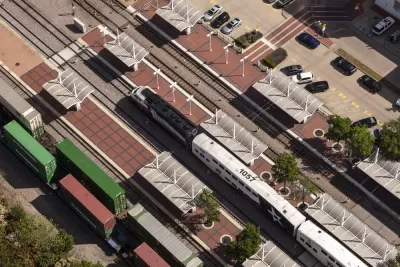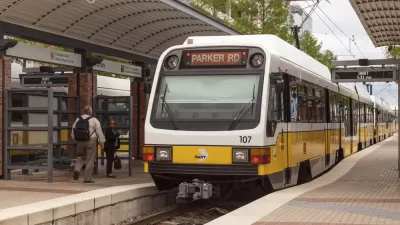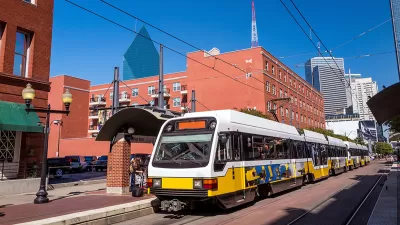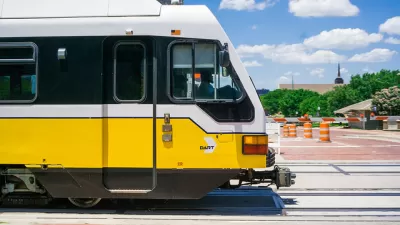Officials would like to speed up the arrival of the Cotton Belt—a planned rail line connecting Dallas to Plano—but that might require sacrificing service.

"A key part of fast-tracking rail service on the Cotton Belt line from DFW International to Plano hinges on lowering construction costs," according to an article by Brandon Formby. "To do that, Dallas Area Rapid Transit is considering single-tracking most of the route instead of double-tracking the entire path."
The project is currently expected to be complete by 2035. Single-tracking the line could speed up project completion to 2025.
Meanwhile, Cotton Belt planners are presented with the following dilemma: "Having two sets of tracks the entire way would allow trains to move in both directions without interfering with each other. But that's more expensive. Having one set is cheaper, but also comes with some operational inflexibility."
FULL STORY: Getting Cotton Belt rail service a decade early could come with some limitations

Alabama: Trump Terminates Settlements for Black Communities Harmed By Raw Sewage
Trump deemed the landmark civil rights agreement “illegal DEI and environmental justice policy.”

Planetizen Federal Action Tracker
A weekly monitor of how Trump’s orders and actions are impacting planners and planning in America.

The 120 Year Old Tiny Home Villages That Sheltered San Francisco’s Earthquake Refugees
More than a century ago, San Francisco mobilized to house thousands of residents displaced by the 1906 earthquake. Could their strategy offer a model for the present?

Ken Jennings Launches Transit Web Series
The Jeopardy champ wants you to ride public transit.

BLM To Rescind Public Lands Rule
The change will downgrade conservation, once again putting federal land at risk for mining and other extractive uses.

Indy Neighborhood Group Builds Temporary Multi-Use Path
Community members, aided in part by funding from the city, repurposed a vehicle lane to create a protected bike and pedestrian path for the summer season.
Urban Design for Planners 1: Software Tools
This six-course series explores essential urban design concepts using open source software and equips planners with the tools they need to participate fully in the urban design process.
Planning for Universal Design
Learn the tools for implementing Universal Design in planning regulations.
Clanton & Associates, Inc.
Jessamine County Fiscal Court
Institute for Housing and Urban Development Studies (IHS)
City of Grandview
Harvard GSD Executive Education
Toledo-Lucas County Plan Commissions
Salt Lake City
NYU Wagner Graduate School of Public Service





























